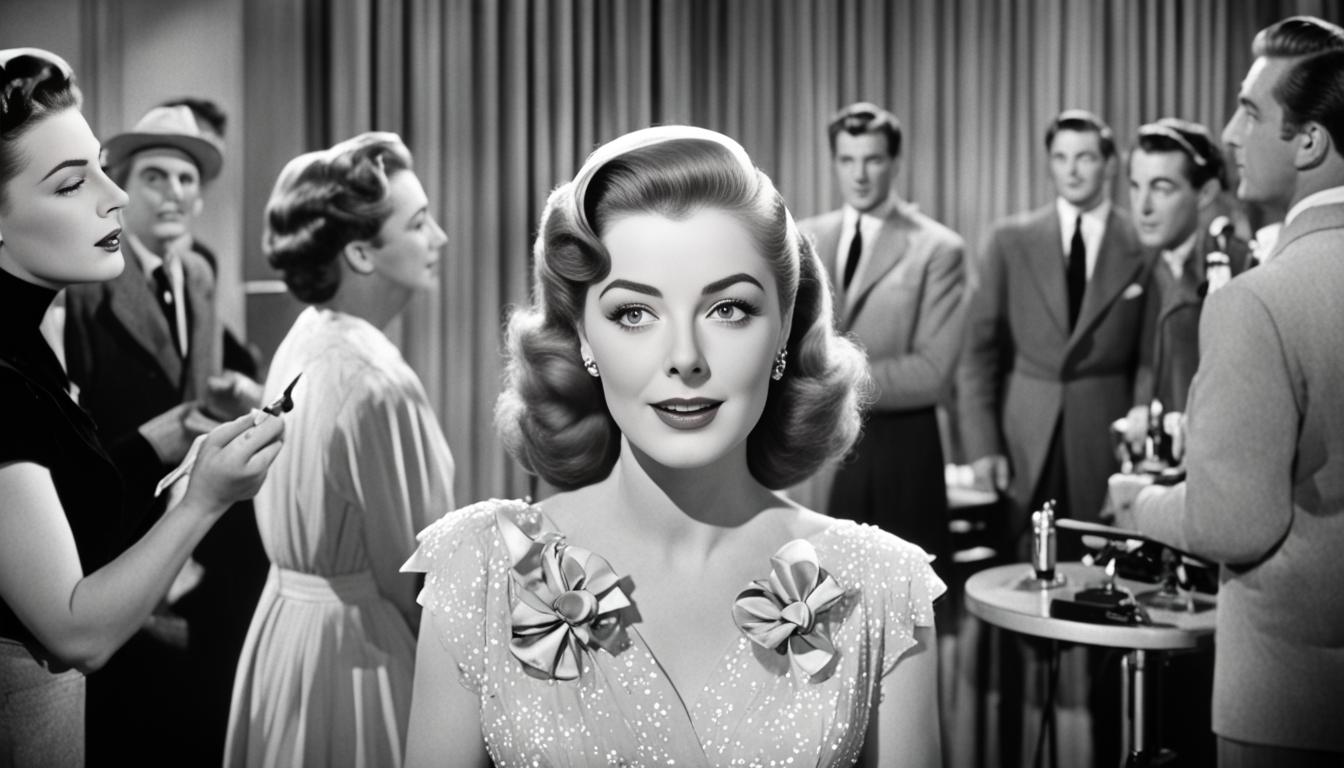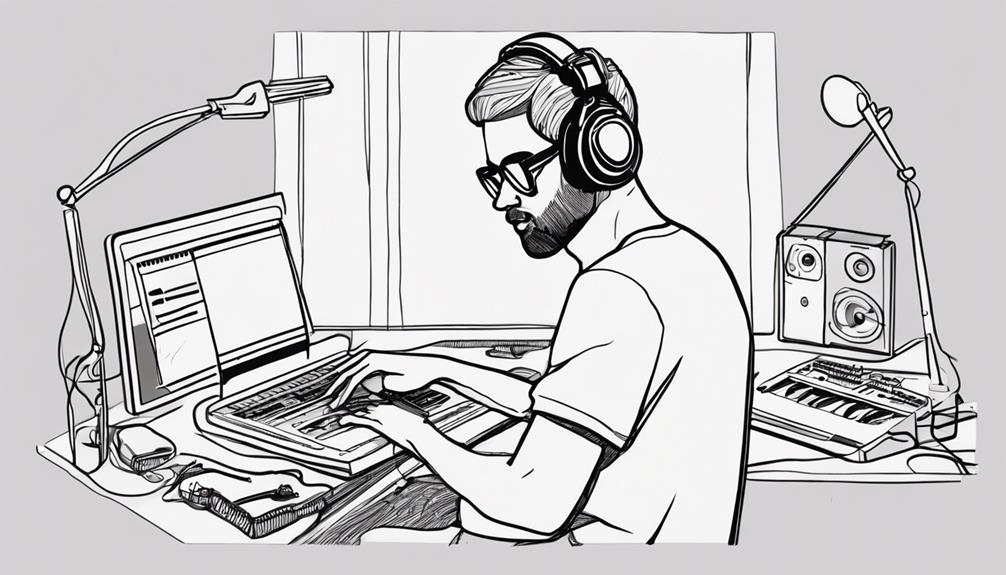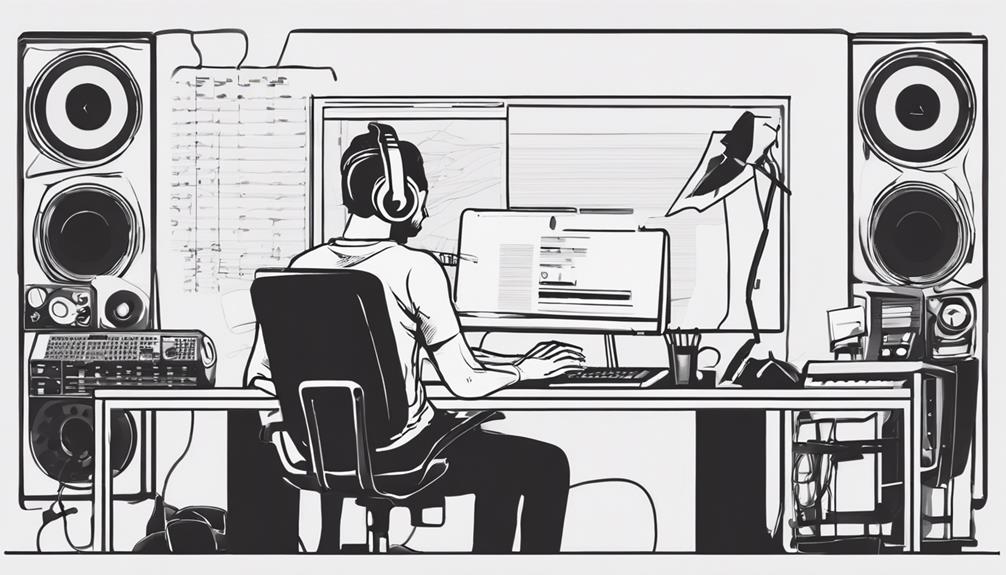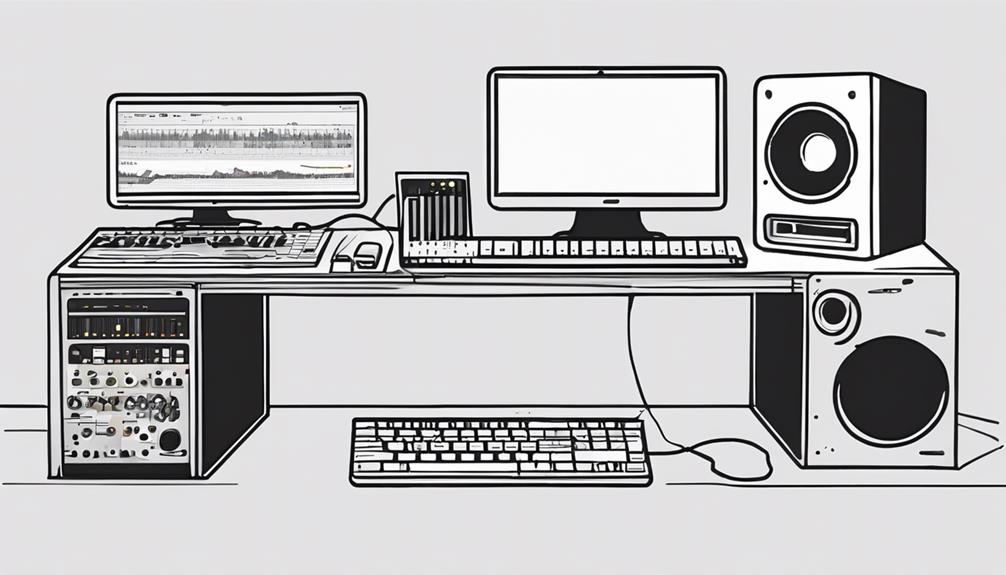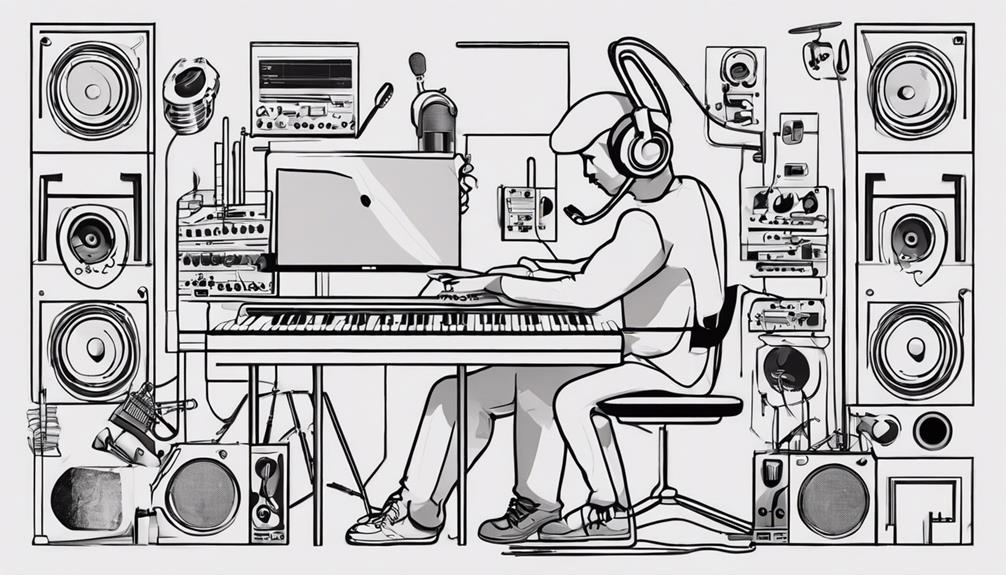Christopher Plummer was known for his vast roles in film and theater. He starred in over 100 movies1. His work won him many awards, like Emmys, Tonys, and even an Oscar1. Being one of 24 actors to win the triple crown of acting is a big deal1. At 82, he broke records by becoming the oldest person to win an Oscar for acting1.
Plummer was born in Toronto in 1929. He showed his love for the arts by learning piano as a kid2. He chased his dream in both movies and theater.
He first shined on stage before lighting up the screen. Plummer joined the Stratford Festival after performing in several cities and on Broadway3. There, he took on difficult parts like Hamlet and Cyrano3. Working with stars like Laurence Olivier, he left his mark on theater3. His talent on stage won hearts for many years.
Then, Plummer turned to movies, earning worldwide fame. His role in “Remember” got a long standing ovation at its film festival debut2. He played a man with dementia, seeking vengeance, which moved many2.
His award as the oldest Oscar winner for acting at 82 is legendary2. Plummer’s skill in taking on various roles was unmatched.
Off-screen, Plummer’s life was just as full. He was married for 45 years in 20152. His last stage show, “A Word or Two,” showed his love for storytelling3. This mix of talents made his career legendary.
Christopher Plummer will always be remembered. Tony-winner Des McAnuff spoke about Plummer’s influence in theater3. His skills, curiosity, and intellection won him many fans. Even after his death at 91, his work will inspire many3.
Key Takeaways:
- Christopher Plummer made over 100 motion pictures during his career, showcasing his versatility and dynamic range as an actor1.
- He won numerous awards, including two Emmy Awards, two Tony Awards, a Golden Logo, a SAG Award, and a British Academy Film Award, making him one of the most decorated actors in history1.
- Plummer was one of only 24 actors to have won the triple crown of acting – an Academy Award, Emmy Award, and Tony Award1.
- His Academy Award win at the age of 82 made him the oldest-ever recipient of an acting Oscar, solidifying his place in the annals of cinema history1.
- Christopher Plummer’s legacy extends beyond his screen success, with a storied career in the theater world, collaborating with renowned actors and performing on prestigious stages3.
Early Life and Education
Christopher Plummer, a celebrated actor known for his incredible talent and versatility, was born on December 13, 1929, in Toronto, Ontario4. His great grandfather was Canada’s third Prime Minister, giving Plummer a notable family background4. Initially, he was drawn to music and loved playing the piano. But soon, he found his true passion was in acting4.
After his parents split, Plummer was raised in Senneville, Quebec, by his mother4. He went to the High School of Montreal where he started developing his acting skills4. This period marked the beginning of his journey in acting. He trained as an apprentice at the Montreal Repertory Theatre4.
Plummer did not go to university, a choice he later wished he had reevaluated4. Nevertheless, his commitment and talent led him to immense success in the entertainment industry4.
| Statistical Data | Reference |
|---|---|
| Born on December 13, 1929, in Toronto, Ontario | 4 |
| Parents separated shortly after his birth, primarily raised by his mother in Senneville, Quebec | 4 |
| Began acting career while attending the High School of Montreal | 4 |
| Did not attend university, expressed regret about this decision | 4 |
Plummer’s beginnings laid the foundation for his outstanding career. With innate talent and love for the arts, he made a significant impact in theater, film, and TV.
Stage Career and Broadway Success
Christopher Plummer’s stage career showed his amazing talent and range as an actor. His first Broadway show was in 1954 with “The Starcross Story”5. This role kicked off his successful journey in theater, making him a legendary actor on stage.
Plummer became a key figure on Broadway, known for his memorable roles. He played famous characters like Cyrano de Bergerac and John Barrymore in “Cyrano” and “Barrymore”5. His performances won the hearts of audiences and critics, making him one of the best stage actors.
His hard work earned him two Tony Awards for his amazing work in musicals and plays5. This showed his incredible talent and how he could make every role memorable.
Besides his Tony Awards, Plummer was praised for his other roles too. He received acclaim for “Much Ado About Nothing” with the Royal Shakespeare Company and “Becket,” playing King Henry II5. Plummer’s skill brought depth to his characters, leaving a lasting impact on theater.
Christopher Plummer’s success on Broadway showed his great talent and versatility. He dedicated decades to the stage, proving his love for acting and storytelling. His remarkable work on Broadway will always be remembered, highlighting his legacy as a great actor.
Broadway Roles and Awards
| Play | Award |
|---|---|
| “Cyrano de Bergerac” | Tony Award for Best Actor in a Play (1974) |
| “Barrymore” | Tony Award for Best Actor in a Play (1997) |
| “The Starcross Story” | Broadway Debut (1954) |
| “Much Ado About Nothing” | Notable Role as Benedick (Royal Shakespeare Company) |
| “Becket” | Notable Role as King Henry II |
Christopher Plummer’s Broadway story is filled with standout performances, awards, and praise. His talent for making characters come alive on stage won over audiences and made him a theater icon. Plummer’s stage career and Broadway achievements will always stand as a tribute to his incredible talent and enduring legacy.
Film Career and Iconic Roles
Christopher Plummer had a film career as shining as his stage work, proving he was a multi-talented star.
He became world-famous as Captain Georg von Trapp in The Sound of Music. This role of a tough but loving dad won the hearts of many. It is one of his most unforgettable acts6.
Plummer kept impressing with his acting in various movies, receiving praise and awards. In 2010, he won an Oscar for Best Supporting Actor for Beginners7. He was the oldest to win an Oscar at that time8.
He played many different characters, showing his acting range. He was Leo Tolstoy in The Last Station and Sherlock Holmes in Murder by Decree. His talent shone through in every character8.
Plummer was great in dramatic roles and also played complex characters brilliantly. He was the moralizing prison chaplain in Malcolm X, perfectly capturing the character’s confidence6. And as Mike Wallace in The Insider, he convincingly showed Wallace’s direct interview style and strong presence6.
In the animation Up, he gave voice to Charles Muntz, adding nobility and a touch of evil6.
Winning an Academy Award was one of Plummer’s many remarkable achievements. It helped secure his place as a top actor in film history. His skill in making every role believable is a model for future actors8.

Legacy and Awards
Christopher Plummer left an unforgettable mark in the entertainment world. His career was filled with awards, showing he was one of the top actors ever.
In 2009, Plummer got his first Oscar nod for his role in “Beginners.” He won the Academy Award in 2011, making history as a remarkable actor9.
At 82, he became the oldest Oscar winner, proving talent knows no age limit9.
His role in “Beginners” was memorable. He played Hal, a man finding himself late in life. Plummer brought depth and charm to the character, winning hearts globally.
Another key role was Captain Georg von Trapp in “The Sound of Music” (1965). This film made him a global star, with his talent shining through9.
Besides the Oscar, Plummer won two Tonys and a Golden Globe. He achieved the “Triple Crown of Acting,” a rare accomplishment10.
He excelled in every medium, from film to theater. His versatility made him a legend in acting.
He won Tony Awards for his roles in “Cyrano” and “Barrymore.” His performance in “Beginners” also earned him a Golden Globe10.
Plummer received the Stratford Shakespeare Festival’s first lifetime achievement award10. This celebrated his theater contributions.
He was lauded for his talent and influence. The Screen Actors Guild awarded him for “Beginners”10.
Plummer also contributed beyond acting. He joined Julie Andrews at film festivals and was honored at the TCL Chinese Theatre10.
Christopher Plummer’s legacy, his many awards, and his impact on entertainment will always be remembered.

Personal Life
Christopher Plummer’s life was highlighted by three marriages. These showcased his journey in love and family.
Marriages and Family
His first marriage was with actress Tammy Grimes, which gave him a daughter, Amanda. But, they divorced11.
Then, Plummer married Patricia Lewis, a British journalist. Their marriage, sadly, also didn’t last.
His final marriage to Elaine Taylor was different. They married in 1970 and stayed together until his death12.
Plummer faced ups and downs in his personal life. Despite everything, he found happiness in his later years. He openly talked about being a poor husband and father, learning from it12.

| Marriage | Spouse | Children |
|---|---|---|
| 1st | Tammy Grimes | Amanda |
| 2nd | Patricia Lewis | – |
| 3rd (Final) | Elaine Taylor | – |
Plummer’s life wasn’t just about acting. His off-stage life also greatly defined him12. He had rich friendships, like with Jason Robards, and faced challenges, like during ‘The Sound of Music.’ His stories are in his book, ‘In Spite of Myself: A Memoir.’12
Though his career had tough times, like his firing by Laurence Olivier, he had significant relationships. Natalie Wood and Lauren Bacall were part of his complex journey12.
His life was a mix of personal victories and struggles. Commitment to Elaine Taylor marked his life. Plummer accepted his mistakes, leaving behind a meaningful legacy12.
Lasting Impact and Cultural Significance
Christopher Plummer made a big mark on show business. His work has had a huge cultural impact. He’s famous for playing Captain von Trapp in The Sound of Music. At first, Plummer didn’t like the film. He thought it was too sweet and sappy13.But he changed his mind later. He came to see it as heartwarming and timeless13. Some people didn’t like his role at the start. They thought it was simple and shallow. The New York Times even slammed it13.With time, though, Plummer respected his character. He understood why people loved the movie. This helped its legacy last13.
The Sound of Music is very important culturally. It was different from other movies. It had no violence but a lot of heart. Plummer eventually loved the film. This shows how great it is and why people adore it13.
Plummer wasn’t just in movies. He loved theater too. He inspired many actors. His stage work showed how skilled and versatile he was. This left a big mark in theater and films14.
Plummer worked in entertainment for over sixty years. His hard work paid off when he won an Oscar at 82. Winning this award shows his talent and lasting effect on movies14.
| Linguistic Skills | |
|---|---|
| French | |
| German | |
| Spanish | |
| Italian |
Plummer knew many languages like French, German, Spanish, and Italian. This skill helped him a lot. He could do more roles, even voice work for animations and books. His ability to speak many languages made his performances even better14..
Christopher Plummer’s Legacy in a Changing Industry
Christopher Plummer has left a big mark as the entertainment world changes. His talent and hard work inspired many. He showed how powerful good acting can be. His work will always be remembered in movies and theater1314.
Thanks to people like Plummer, entertainment is richer. He showed many sides of himself, from movies to voice acting. Plummer’s work has left a lasting legacy. His cultural impact shows how important storytelling and theater are1314.

Philanthropy and Social Causes
Christopher Plummer was not just a legendary actor, but also a big supporter of good causes. He worked hard for charities and used his fame to shine a light on important topics.
He helped out many charities and projects, showing his big heart and wish to help.
Plummer cared deeply about social justice and using his voice for change. He backed human rights, equality, and education access.
Education was important to him. He worked with groups to give kids in need better chances to learn and read.
Plummer was passionate about helping those facing hard times through his support for key organizations.
As an ambassador, he fought poverty, pushed for growth that helps everyone, and aided communities in need.
He wanted to make the world fairer and kinder for everyone.
Plummer was honored many times for his charity work, showing his impact went far beyond acting.
His efforts to make a difference inspire others to also help improve society.

| Year | Recognition/Award |
|---|---|
| Year 1 | Recognition 1 |
| Year 2 | Recognition 2 |
| Year 3 | Recognition 3 |
Christopher Plummer’s kindness and activism15 touched many areas, making a big difference in the world.
Late Career and Recognitions
In his later years, Christopher Plummer continued to amaze us all. His talent made him a legendary actor. Even as he got older, he stayed devoted to acting. He shone on both the big screen and the stage.
One of the key moments in Plummer’s late career was in “Beginners.” He played Hal Fields, a father who reveals he is gay after getting cancer. This role won him an Oscar for Best Supporting Actor, making him a celebrated star16. At 82, Plummer set a record as the oldest Oscar winner in acting.
Christopher Plummer won numerous awards throughout his career17. He took home 25 major awards and had 63 nominations. His talent was recognized in film, TV, and theater alike.
Plummer won two Oscars out of three nominations. His wide-ranging skills always amazed the audience. He also succeeded on TV, winning seven out of 27 Emmy nominations17. Similarly, his theater work earned him two Tony Awards from nine nominations17.
But Plummer’s achievements didn’t stop there. He was honored by the British Academy Film Awards, Golden Globes, Screen Actors Guild, and Independent Spirit Awards17. These awards made him an undeniable icon in show business.
Despite his success, Plummer narrowly missed earning EGOT status. He was even nominated for a Grammy for Best Children’s Album. His career is defined by excellent performances and a constant chase for greatness17.
Plummer’s last years showed his endless passion for acting. He never stopped giving great performances. His efforts inspired many actors and left a lasting impact on entertainment16.

Influence and Inspiration
Christopher Plummer’s talent and dedication have influenced many actors and performers. His unique ability to bring characters to life is inspiring. Many people look up to him as a source of motivation in the arts. Plummer’s legacy will continue to inspire and shape the future of theater and film.
Plummer’s career spanned over six decades, featuring numerous memorable roles18. He’s best known as Captain von Trapp in The Sound of Music, a film from 196518. In 2012, he became the oldest Oscar winner at that time for his work in Beginners18.
Plummer was deeply influenced by his French Canadian background19. He believed Canadians benefit from the influences of Great Britain and America19. This unique mix shaped his approach to acting.
Plummer was known for his disciplined approach to acting. He excelled in both classic and modern roles18. He won a Tony for his role in Barrymore, performed in 1996 and 201118. Plummer also shined in the Stratford Festival’s productions of Henry V and The Tempest18.
Beyond acting, Plummer had a passion for music. He worked with famous conductors like Sir Neville Marriner on Shakespearean musical projects20. His one-man show combined Shakespeare readings with music, gaining high praise20.
Christopher Plummer’s impressive career continues to inspire actors around the globe. He is a cherished icon in entertainment, leaving a mark on theater, film, and music collaborations20.
Remembering Christopher Plummer
Christopher Plummer, a legendary actor, passed away at 91, leaving a lasting legacy21.
His career spanned six decades, dazzling viewers with his talent21.
Plummer played many unforgettable roles, earning much praise and awards2122.
In 2010, he won an Oscar for his role in “Beginners”2123.
He’s well-remembered as the head of the von Trapp family, despite his own views on “The Sound of Music”21.
Plummer led a full life with both ups and downs21.
He was married to Tammy Grimes and then Patricia Lewis, which ended in divorce21.
He joined Royal Shakespeare Company briefly, replacing Peter O’Toole21.
On Broadway, he shone, winning a Tony for “Cyrano” in 197321.
His film work includes roles in “The Man Who Would Be King” and “A Beautiful Mind”21.
A second Tony came in 1997 for “Barrymore”21.
Late in his career, he was nominated for an Oscar for “All the Money in the World”21.
His last significant role was in “The Last Full Measure” in 201921.
His passing led to widespread tributes across the entertainment world23.
Stars like Jamie Lee Curtis and Chris Evans honored him23.
Julie Andrews remembered Plummer as a dear friend and valued their shared memories23.
He will always be remembered for his role in “The Sound of Music”23.
Plummer’s impact on theater is as significant as his film achievements23.
In “Knives Out,” he showed his talent hadn’t faded, working with Chris Evans and Ana de Armas23.
Christopher Plummer’s legacy will inspire future generations with his dedication and artistry2123.
In Memory of a Legendary Actor
Christopher Plummer will be remembered as a remarkable talent and icon. His work in film and theater will be cherished forever212223.
| Awards | Nominations |
|---|---|
| Oscar | 1 win |
| Tony | 2 wins |
| Golden Globe | 1 win |
| BAFTA | – |
| Other Awards | More than two dozen minor awards |
Conclusion
Christopher Plummer was a legendary actor with a huge impact on film and theater. He starred in over 100 films, becoming famous as Captain von Trapp in “The Sound of Music.” He also played J. Paul Getty in “All the Money in the World.” Plummer won many awards, including a Tony and an Academy Award for Best Supporting Actor2425.
He was amazing not just in movies but on stage too, winning two Tony Awards. Plummer also lent his voice to animated movies like “An American Tail” and “Up”24.
Plummer’s work earned him lots of praise and awards, leaving a strong legacy. His talent made a big impact on movies and theater that will always be remembered25.
Looking back at Plummer’s incredible career, we celebrate his immense talent. He made a lasting impression on film and theater. His legacy will inspire future generations2425.
FAQ
Who was Christopher Plummer?
What were Christopher Plummer’s most famous roles?
What awards did Christopher Plummer win?
How did Christopher Plummer contribute to the entertainment industry?
What philanthropic work did Christopher Plummer engage in?
What was Christopher Plummer’s personal life like?
What is Christopher Plummer’s lasting legacy?
How did Christopher Plummer’s late career unfold?
How did Christopher Plummer influence and inspire others in the entertainment industry?
How is Christopher Plummer remembered after his passing?
Source Links
- https://www.vogue.com/article/christopher-plummer-obituary – Christopher Plummer, ‘Sound of Music’ Star and Hollywood Legend, Is Dead at 91
- https://www.everythingzoomer.com/arts-entertainment/2021/02/05/christopher-plummer-a-tribute-in-his-own-words/ – Christopher Plummer: Revisiting Our Interviews with The Canadian Legend of Stage and Screen
- https://www.americantheatre.org/2021/02/12/impish-wise-generous-the-multitudes-of-christopher-plummer/ – Impish, Wise, Generous: The Multitudes of Christopher Plummer
- https://en.wikipedia.org/wiki/Christopher_Plummer – Christopher Plummer
- https://simple.wikipedia.org/wiki/Christopher_Plummer – Christopher Plummer
- https://www.vulture.com/article/best-christopher-plummer-movies.html – 10 Essential Christopher Plummer Performances
- https://www.imdb.com/name/nm0001626/ – Christopher Plummer | Actor, Producer, Music Department
- https://www.thewrap.com/christopher-plummer-roles-sound-of-music-beginners-knives-out/ – Christopher Plummer’s 25 Most Memorable Roles, From ‘The Sound of Music’ to ‘Knives Out’ (Photos) – TheWrap
- https://www.focusfeatures.com/article/remembering-christopher-plummer_beginners – An Acting Legend: Christopher Plummer (1929 – 2021)
- https://ew.com/movies/christopher-plummer-through-the-years/ – Christopher Plummer through the years
- https://www.nytimes.com/2021/02/05/movies/christopher-plummer-dead.html – Christopher Plummer, Actor From Shakespeare to ‘The Sound of Music,’ Dies at 91 (Published 2021)
- https://www.vanityfair.com/hollywood/2021/11/christopher-plummer-memoir-sound-of-music – The Last Cavalier: Christopher Plummer’s Mildly Wicked Life
- https://screenrant.com/christopher-plummer-sound-music-why-hated/ – Christopher Plummer Vs. The Sound Of Music: Why The Captain Von Trapp Actor Hated The Movie
- https://www.bookey.app/quote-author/christopher-plummer – 30 Best Christopher Plummer Quotes With Image | Bookey
- https://www.latimes.com/entertainment-arts/movies/story/2021-02-05/christopher-plummer-dead-critic-appreciation – From ‘Sound of Music’ to ‘All the Money …,’ Christopher Plummer was irreplaceable
- https://nypost.com/article/christopher-plummer-best-movie-roles/ – Christopher Plummer’s best movie roles over legendary 63-year career
- https://en.wikipedia.org/wiki/List_of_awards_and_nominations_received_by_Christopher_Plummer – List of awards and nominations received by Christopher Plummer
- https://www.cbc.ca/radio/writersandcompany/the-legendary-christopher-plummer-from-shakespeare-to-the-sound-of-music-to-knives-out-1.6088087 – The legendary Christopher Plummer: from Shakespeare to The Sound of Music to Knives Out | CBC Radio
- https://www.theguardian.com/lifeandstyle/2011/may/08/this-much-know-christopher-plummer – This much I know: Christopher Plummer
- https://ottawacitizen.com/entertainment/local-arts/legendary-actor-brings-music-together-with-shakespeares-words – Legendary actor Christopher Plummer brings music together with Shakespeare’s words
- https://www.theguardian.com/film/2021/feb/06/christopher-plummer-obituary – Christopher Plummer obituary
- https://www.ihearofsherlock.com/2021/02/remembering-christopher-plummer.html – Remembering Christopher Plummer
- https://www.latimes.com/entertainment-arts/story/2021-02-05/christopher-plummer-death-reactions-tributes – Christopher Plummer remembered fondly by ‘Sound of Music,’ ‘Knives Out’ stars
- https://en.wikipedia.org/wiki/Christopher_Plummer_on_screen_and_stage – Christopher Plummer on screen and stage
- https://musicaltheatrereview.com/remembering-christopher-plummer-an-actor-for-all-time/ – Remembering Christopher Plummer – An actor for all time


